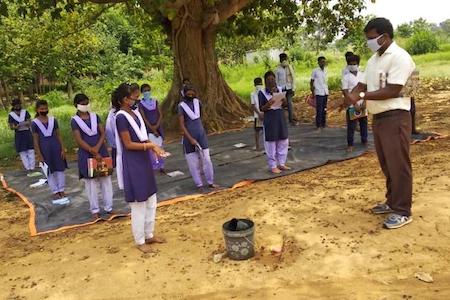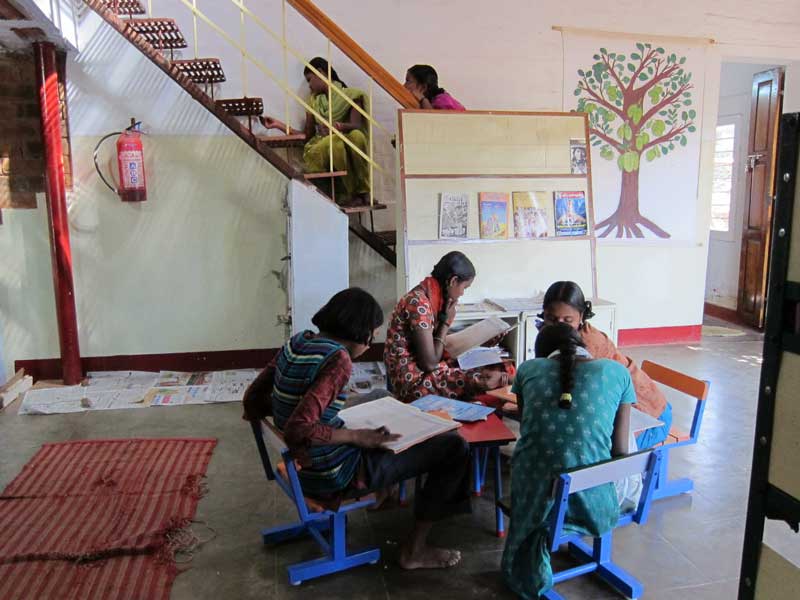Resolving long-standing imbalances is a stupendous task. This requires committed educators, politicians, academics, social and medical workers. the goal must be greater access to quality Education:
An improvement would happen only when the current set of teachers (whatever be their limitations) are empowered to teach the majority of their students in a way that they get a proper sense of what they are taught. This is not a difficult task. In my view, the majority of students in any cohort would be able to assimilate quality education if an appropriate pedagogy is attempted. Such a desirable change should happen to the 90 percent of college and school teachers and their students in the country. That is an enormous task but has to be accomplished with perseverance. – Prof. V. Santhakumar’s blog Economics in Action: “Only small, consistent steps can improve the quality of education in India” (1 November 2019)

Such efforts need to be matched by proper Media portrayal – reporting that is both balanced and appropriate given the magnitude of challenges faced by India’s rural pulation:
Although deprivation so defined is a huge part of contemporary Indian reality both in the countryside and in cities, the mainstream media do not generally give it informed, sustained coverage. – Asian College of Journalism: Covering Deprivation
Until now – in the words of noted press photographer P. Sainath – “media attention in India is almost exclusively focused on its metro cities”; a situation he and like-minded people seek to counter by launching an ambitious effort in 2014: the People’s Archive of Rural India (PARI) – https://ruralindiaonline.org
“The report titled, Who Tells Our Stories Matters: Representation of Marginalised Caste Groups in Indian Newsrooms, was released on 2 August. It studied the representation of people from different caste groups in the Indian media to document ‘who has a seat at the table and whose voice has a chance of being heard.’ It found that the ‘Scheduled Tribes are almost entirely absent, whereas the Scheduled Castes are represented mostly by social activists and politicians rather than journalists. English newspapers are worse than Hindi on representing Dalit, Adivasi writers.” – The Caravan, 3 August 2019 >>
At the same time, all tribal children are entitled to retaining their cultural and linguistic identity:
A sensitive cadre of teachers and bureaucracy is definitely required to make the difference. At another level, educational deprivation must be seen in the context of overall deprivation of the community and hence emphasis must be placed on improving the situation of tribal communities in general. Restoring land and livelihoods, empowering women, providing basic civic amenities such as fuel, water and sanitation are preconditions to advancements of rights of tribal children. – Archana Mehendale
“The smart boy or clever girl who is deprived of the opportunity of schooling, or who goes to a school with dismal facilities (not to mention the high incidence of absentee teachers), not only loses the opportunities he or she could have had, but also adds to the massive waste of talent that is a characteristic of the life of our country.” – Nobel Awardee Amartya Sen in The Argumentative Indian (Penguin Books, 2005), p. 344 | Find this and other books published in India >>
Related: Tribal Children’s Right to Education | Childhood | Ekalavya (Eklavya, Eklabya), EMR & Factory schools | Childrens rights: UNICEF India >>
This agrees with the experiences gathered at the Viswa Bharati Vidyodaya Trust in Gudalur (Tamil Nadu). Here members of several tribal communities belonging to different linguistic groups and surrounded by three official languages – Tamil, Malayalam and Kannada – manage their own educational and health institutions.
Based on personal teaching experiences with English medium in Adivasi education, the trust’s co-founder Stan Thekaekara observes:
Our challenge therefore is not ensuring that they do not learn other languages but ensuring that this is not at the cost of their own language. | More about Multi-lingual education >>
- Continue the guided tour – Part 8 >>
- Start the guided tour (Part 1)

